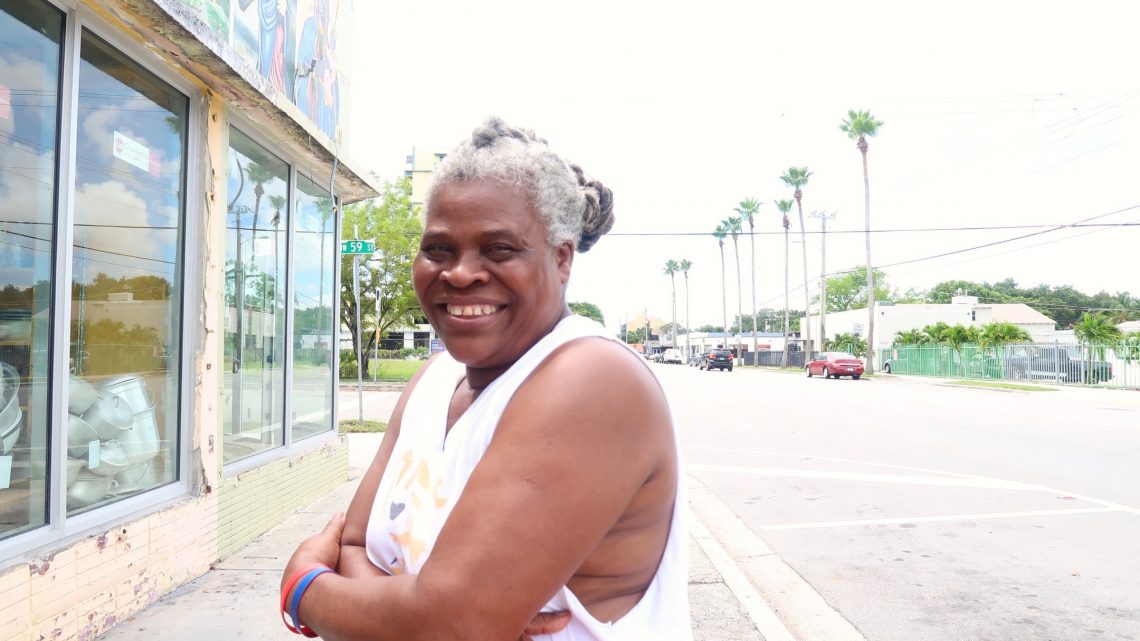
Gentrification Is Pushing Haitians Out of Miami’s Little Haiti
September 21, 2018From 2014 until this past April, I lived on Northwest Second Avenue in Miami, Florida's Little Haiti neighborhood. Migrants from Haiti began arriving here in large numbers in the late 80s, following the collapse of the Jean-Claude Duvalier dictatorship. For many, the weather and ambiance of Miami seemed like a natural transition.
My studio was across the street from the Zubi Market, a small bodega that stayed open during Hurricane Irma after all the major chain drugstores and groceries had closed. I lived down the street from little Caribbean spots like Clives Cafe, a Jamaican eatery famous for its meat and veggie patties, and Chef Creole, which attracts tourists looking to try Haitian cuisine like griot and plantains for the first time. I used to love to walk down Second Avenue and see women selling dresses off of trees or watch people run after the jitney, a small van that costs $1.50 and drives all through the main streets of the area. But my favorite thing to do in Little Haiti was just hang out on my balcony and listen to the sounds of Kompa music blasting from the loudspeakers outside of the neighborhood's botanicas, which are spiritual stores known for selling potions, religious statues, and alternative medicine. Botanicas are especially popular among devotees of Vodou, Brujería, and Santería faiths.
Over the years, however, gentrification has begun to erase these distinct features that make Little Haiti a special place. A 2015 New York Times article helped spark the wave by alerting art collectors and real estate developers that Little Haiti had a hot scene. Since then, the property values have been climbing. According to real-estate analytics website Zumper, rents in Little Haiti jumped 13 percent over the fall quarter of 2017 and Miami started off the year as the ninth most expensive rental market in the nation. These days, Second Avenue is in transition, the old botanica block was stripped of its facade, and one of the few places you’ll find Haitians and locals hanging out is at the Caribbean Marketplace at the Little Haiti Cultural Complex. Paintings of patron saints by local artists like Serge Toussaint have been replaced with large windows sporting the stickers of development companies. Residents and small business owners in the area have been fiercely opposed to development projects that look to replace apartments with massive residential and commercial towers. I decided to move three months ago, after getting a note from my landlord that my rent was increasing $200.
Even though I no longer live in Little Haiti, I'm still interested in the change that is happening in the neighborhood. To find out how gentrification has impacted those who are still there, I chatted with some local folks. Here's what they had to say.
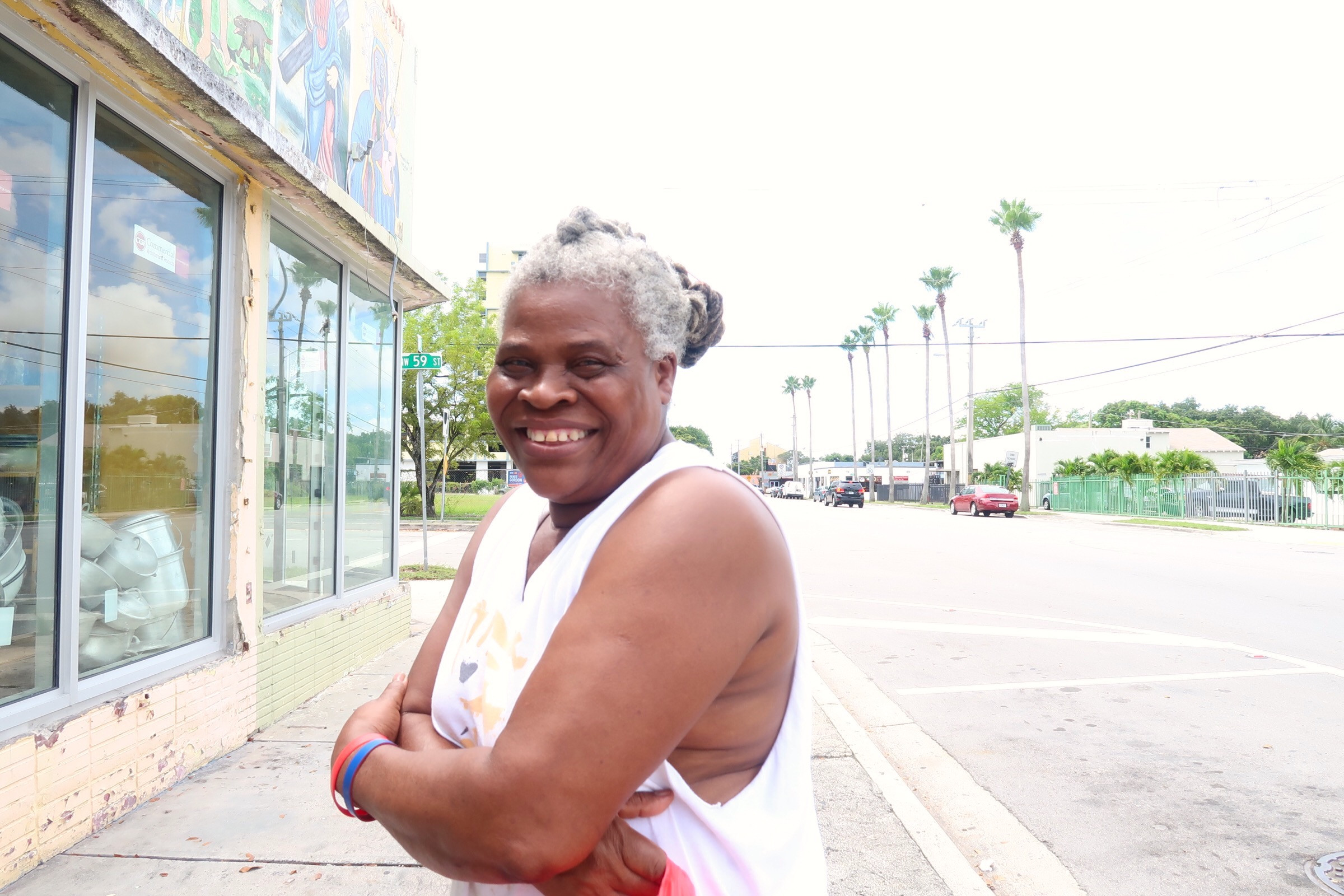
Reine Brumaire is a domestic worker. She has been living in Little Haiti for 34 years.
I decided to come to Miami from Haiti in 1984 when I was pregnant with my fifth child. I knew I wanted to give birth to her here. But this area has changed a lot. The people that are here now, we've never seen before. They don't look like me. When I first came here, we maybe had about 14 buildings. Right now you look around and you see so many and they’re so large. They also never cleaned here. In the last five or six years, the city would never clean up the streets. Now, they come and clean at night and spray for mosquitoes, too.
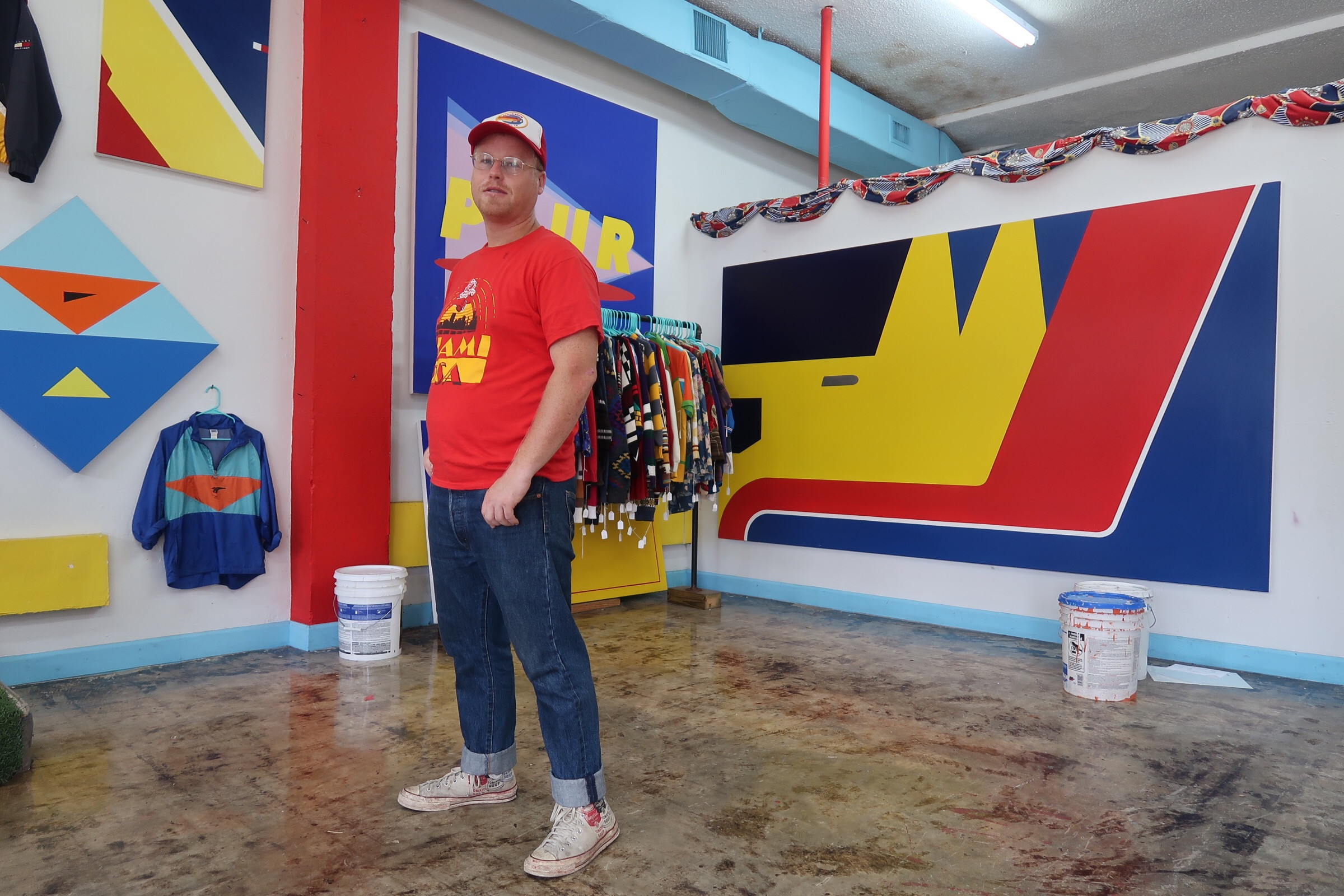
Bean Blackett is a business owner, artist, and activist, who moved to Little Haiti in 2016.
I'm a socialist and a leftist. It totally makes sense to me that someone might see me as the white gentrifier. It's not a false charge. But while I'm here, I'm trying to fight for the people. I work with F amily Action Network Movement (FANM), an organization that fights for the fair treatment of immigrants, and The Dream Defenders, a human rights organization aimed at ending police and state brutality geared toward people of color. I was just out canvassing Amendment 4 to restore voting rights for felons and I'm about to head out again. Yes, they're right about labeling me a gentrifier, but what do we do about it? Should I move to Midtown? Does it help the neighborhood if I just never came here, would the neighborhood be better off? That's how I think about it.
I'm looking to buy something, and even this neighborhood is already getting too expensive for me. I'm going to be fine but the people that gentrification affects are the people that are poor that are going to get evicted and lose their housing. It’s already happening. It's our job together to fight against that. We have to stop stuff like Eastside Ridge. We should have stopped Magic City, but they did a better job of dividing the community. What we need in this neighborhood and every neighborhood is social housing, rent control, and rent stabilization. That matters more than whether individual white people move into a mostly black neighborhood.
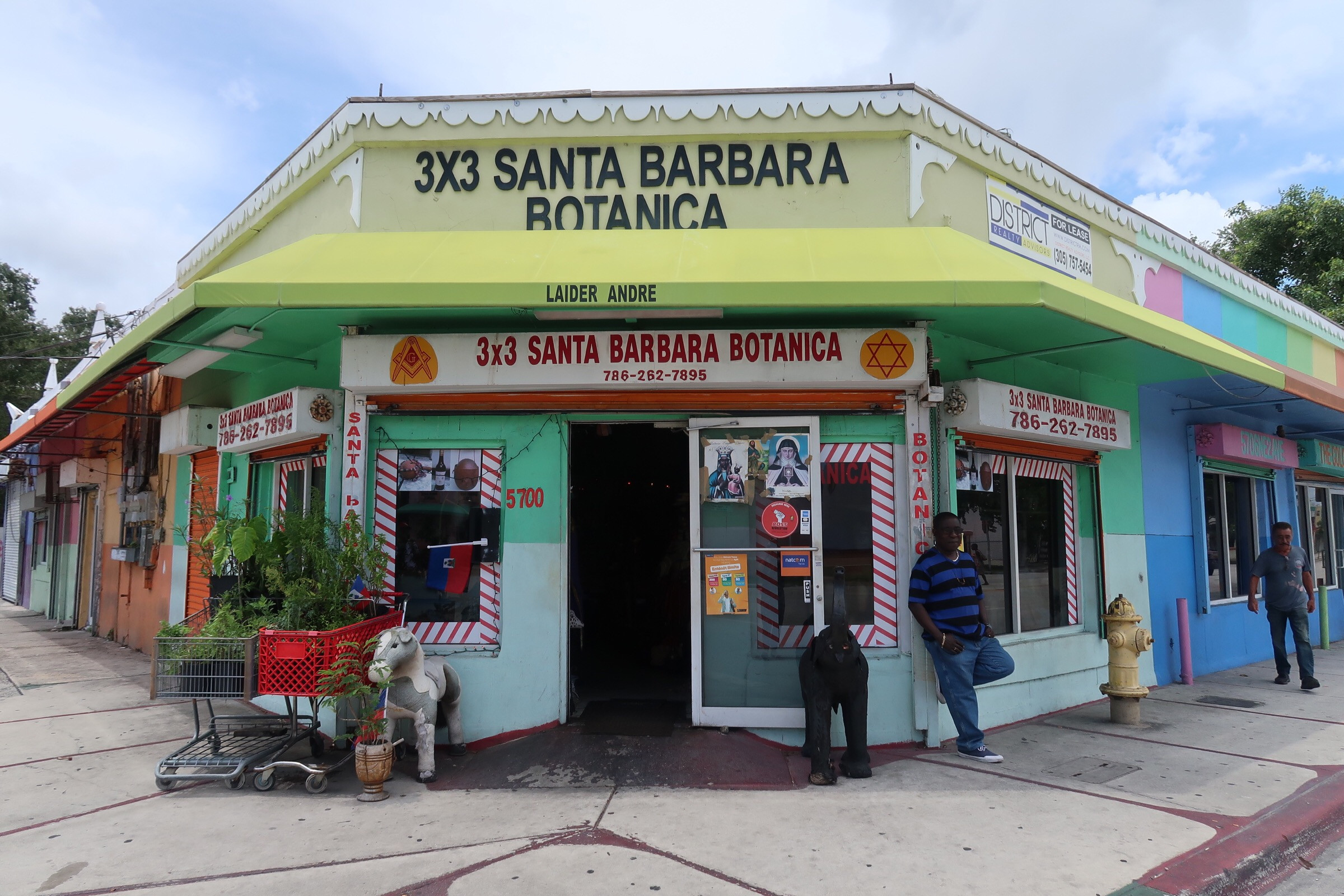
Laider André owns the 3x3 Santa Barbara Botanica. He’s lived in Little Haiti for 25 years. He's been in business at the same location for 15 years.
In the beginning, it wasn't like this. Now tourists come. I'm selling more. It's better for the community that the developers are coming here. It's better for you if you have a chance to stay. They raise the rent, and if you can't afford it, then you move out. It used to be $900—now they’ve added $500. There are a lot of businesses that can't handle it, and they have to move out. I reduced my budget to keep my business.
I would like for the landlord to let me keep my business and see what will happen in the future. If they raise it again, I'll have to move. It's not fair, but what can I do? If I had the money, I would buy this place. Before the first owner sold it, he was asking me for $500,000. I heard the new owner purchased the building for $1 million. Even if I can't stay here, I'll move my business to another place. I'm well known. If I tell them I moved to a new place, my customers will go there.
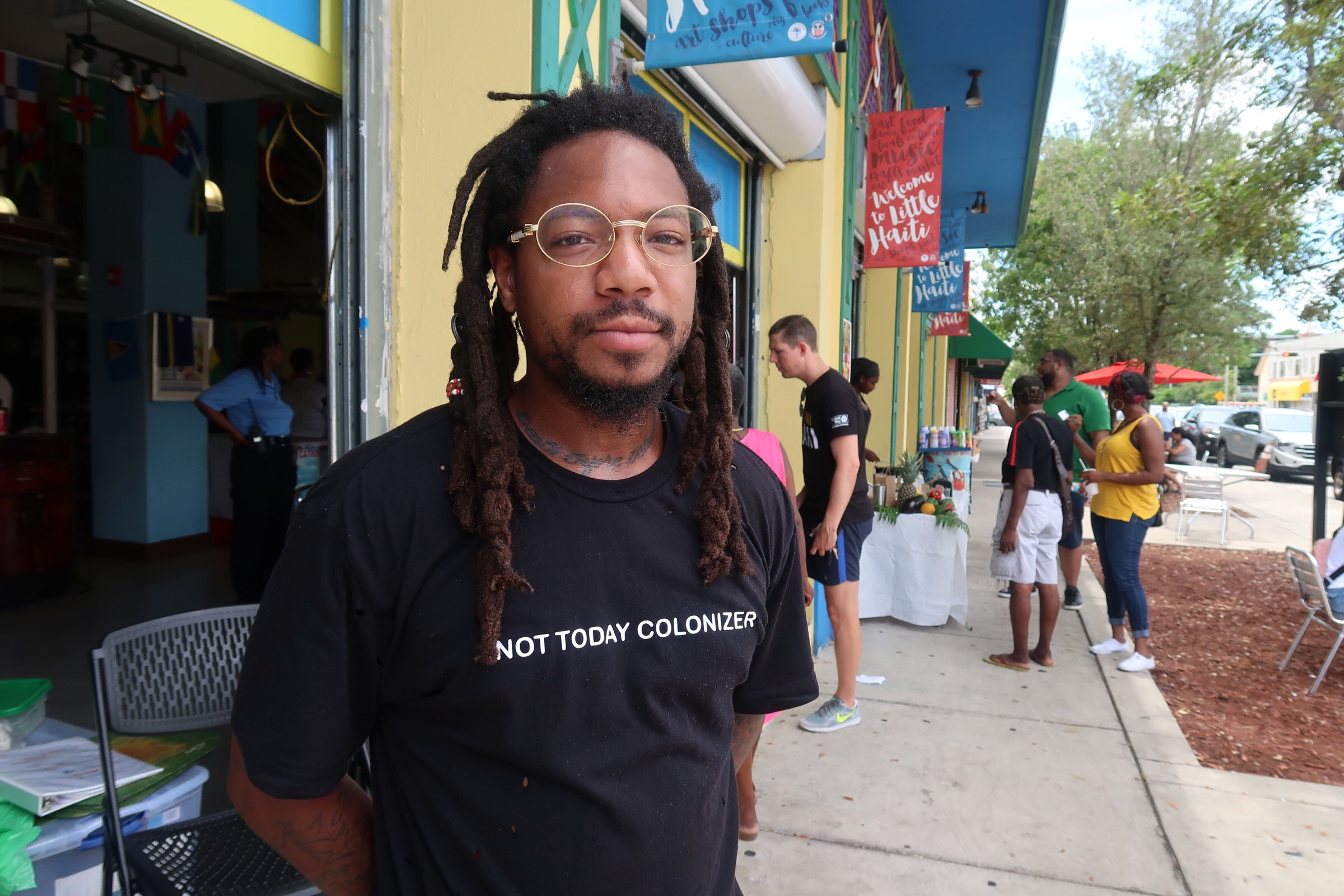
Danny Agnew is a small business owner, activist, and community leader, who moved to Little Haiti two years ago. Through his business, the Roots Collective, he activates and organizes vendors at the Little Haiti Cultural Complex.
You need to support if you want to build. The mission behind this marketplace is to focus on black and brown vendors to vend and build the black dollar. When it comes to gentrification, it's so easy for it to happen because we don't own the land. If we have the capital, then we own property and can open the community centers that we need. My perspective on gentrification is that it is happening to black people all over the world. Whether its Overtown, Liberty City, or Little Haiti, they're all the same. We're dealing with it everywhere.
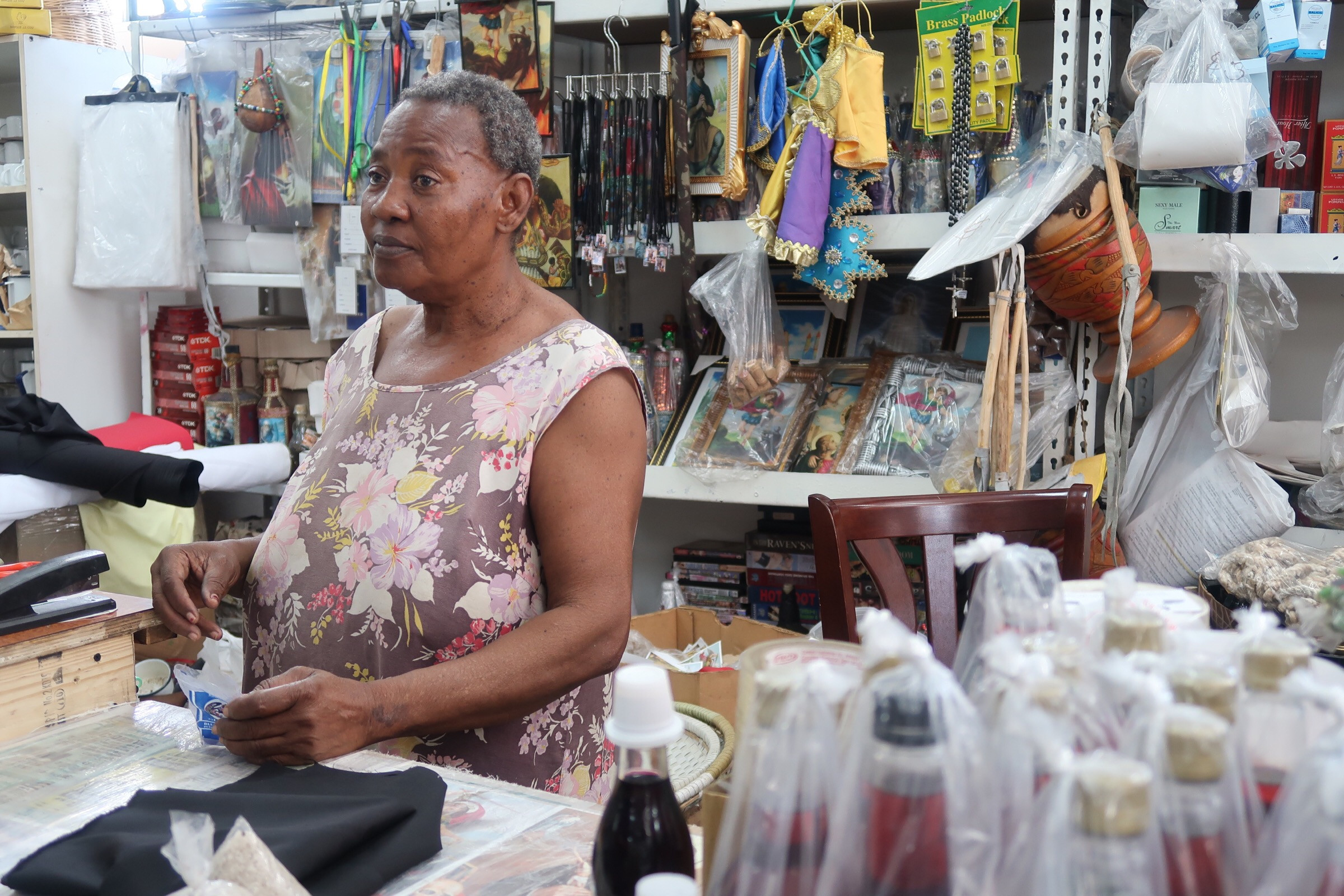
Marie Jefferson is 61 and has been living in Little Haiti for 21 years. She owns the St. Michel Super Botanica, which recently moved to a new location while the original store is being renovated. Both locations are owned by the same developer, who is new to the neighborhood.
Since I moved to this location, the situation has been bad. It’s a real headache. I feel like I should have had the option to stay while the renovation was happening, because I've lost so much business with the move. I know the rent will go up with the renovations. Whoever can afford to stay will stay. And those who can't will leave. I couldn't afford to have professional movers, so I was paying people $20, $40 to move my things. They weren't putting things where I needed them. So I tried to move them myself. I decided to move the shelf and accidentally cut my leg.
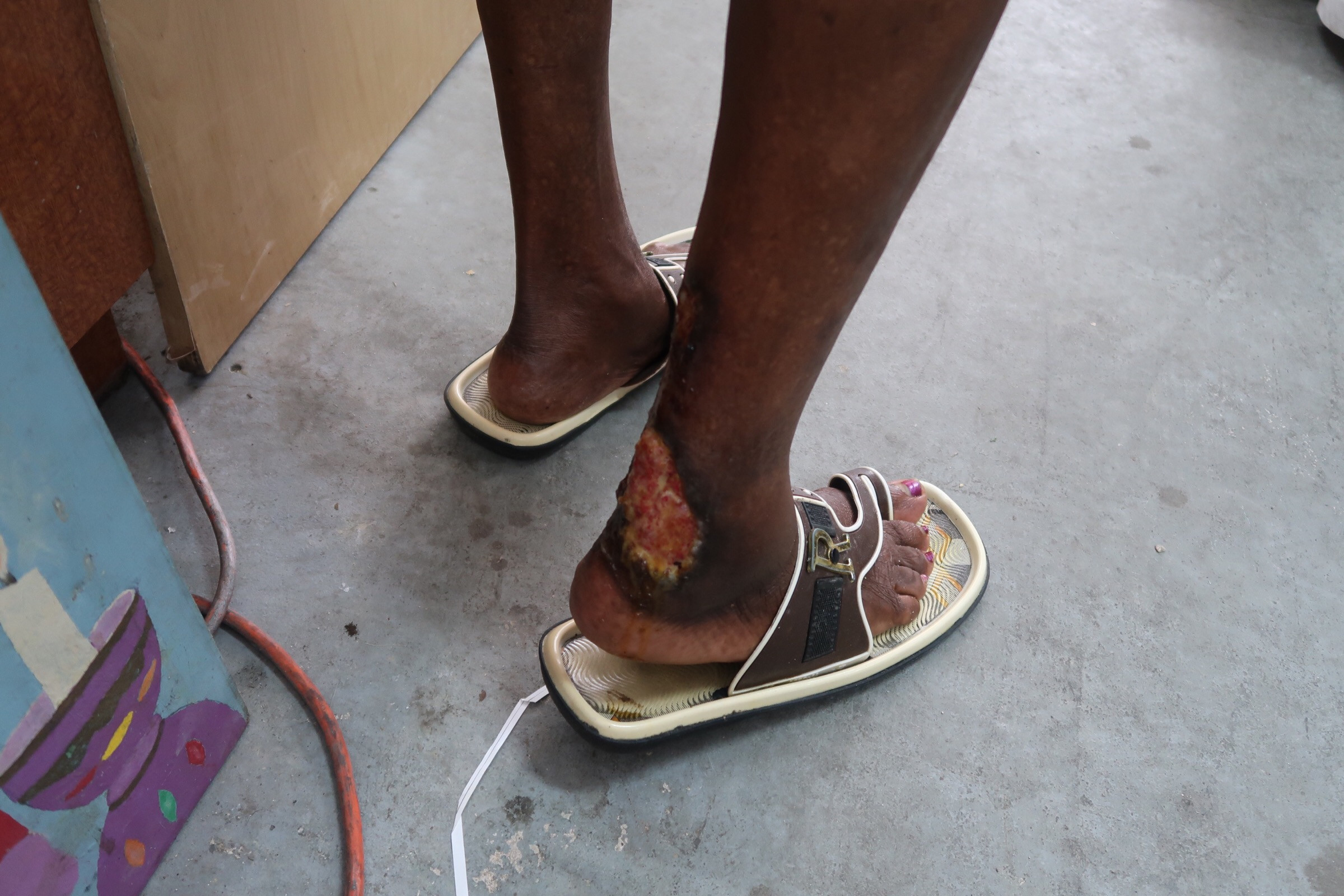
And there was no grace period. Once I moved into the new location, I had to start paying. I feel like I got treated worse than a dog. Even when I try to contact my landlord, he won't answer the phone. He bought all of the businesses around here. Another landlord gave neighborhood businesses a three-month grace period. I can't even think about how much the rent is here. My husband knows, because he pays it. I just work here. I've had brain surgery. I used to weigh 190 pounds. Now I weigh about 140. I can't even eat. It's oppression everywhere. I know how the system works. The little fish can't fight the big fish.
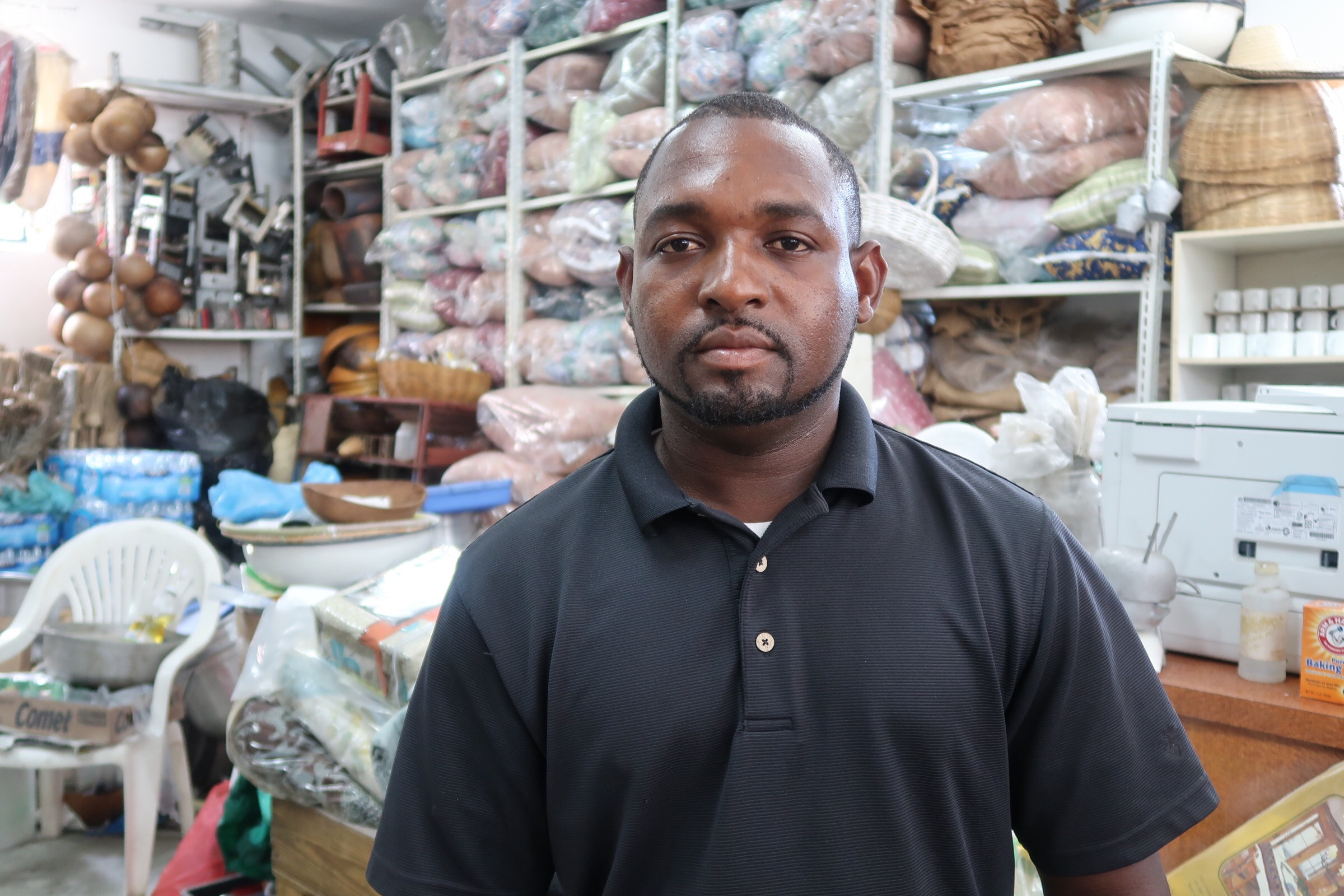
Thiery Moly grew up in Little Haiti. He left to attend college in Jacksonville, where he currently resides.
I've seen the area change. But I don't know what it's changing for. Are people being pushed out? I don't see a lot of the businesses that I grew up with. If it's just renovations and they let the people who were there before stick around, then it's a good thing. If businesses are being forced out because they have to bring the building up to code, then it's a good thing. I hope the changes we see are upgrading the community. But I can’t say yet whether that's the case.
Follow Christian Portilla on Instagram.


